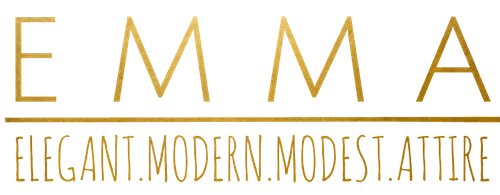Hijab Articles
Is One A Day Women’s Multivitamin Halal?
Because of the various changes a woman’s body goes through monthly, women are more prone to vitamin deficiency. That’s why multivitamins are now as widespread as ever—because they promote healthy bones, support immunity, and improve various bodily functions.
But for Muslim women, consuming multivitamins isn’t as easy as picking your favorite at the store and buying it. You have to check the ingredients list first—which is often written in a tiny font and needs straining your eyes to read, but that’s an issue for another day!
The problem is, the multivitamin of your choice may contain haram ingredients without your knowledge. This urges the question: is One A Day women’s multivitamin halal?
Is One A Day Women’s Multivitamin Halal?

One good example is Centrum, which is pretty common among people conscious of their health. The bad news is that Centrum contains gelatin derived from pigs, making its halal status questionable.
Another multivitamin often deemed haram is the focus of our article today: One A Day. The product doesn’t have a halal certification, which means you can’t be sure about the source of its ingredients.
Say goodbye to hijab fashion dilemmas! Elevate your style effortlessly with our latest elegant hijab collections. Whether it’s sophistication or modern flair you seek, we’ve got the perfect solution for your upcoming event.
Haram Ingredients in Women’s Multivitamins

If you want to make sure your multivitamin of choice is halal under Islamic rulings, it shouldn’t contain any of the haram ingredients in this list:
Non-Halal Gelatin
Non-halal gelatin, widely used as a transparent, tasteless thickening agent, finds its way into numerous products, from cosmetics to skincare.
However, its production from collagen sourced from non-halal animals, notably pigs, makes it incompatible with Islamic dietary principles.
Halal gelatin, sourced from permissible sources like bovine or fish, aligns with Islamic dietary laws and is deemed suitable for consumption.
Any product containing gelatin derived from non-halal sources fails to meet dietary standards and is not permissible for Muslims to consume.
Alcohol
Alcohol and its derivatives, like ethanol or alcohol-based extracts, are prohibited in Islamic dietary laws.
Despite their usage as solvents or preservatives in many goods, like perfumes, their inclusion in consumable items makes them unsuitable for Muslim consumption.
Ensuring the source and extraction methods of these substances are halal is essential before purchasing multivitamins or other products.
Carmine
Carmine, a red food dye derived from carminic acid, is commonly used to intensify the colors of packaging, printing materials, and cosmetics.
Traditionally sourced from dried bodies of specific insects, its use raises questions in Islamic dietary guidelines, which generally discourage insect consumption.
However, Islamic scholars generally agree that carmine undergoes a transformative process during extraction, rendering it permissible (halal) for consumption.
Nevertheless, you should seek clarity on its sourcing and processing to align with your religious dietary practices. Ultimately, determining the halal status of carmine is up to you.
Animal-Derived Ingredients
Animal-derived components found in supplements must adhere to ethical sourcing practices to be deemed halal.
These may include substances like collagen, amino acids, or vitamins sourced from animals. To qualify as halal, you have to make sure that these ingredients originate from animals slaughtered in accordance with Islamic dietary regulations.
This involves scrutinizing both the source and processing techniques to ensure compliance with halal standards.
Products sourced from animals slaughtered lawfully are considered halal, whereas those obtained unethically are classified as haram. Conducting thorough research to confirm the origins of such ingredients before consumption is essential to uphold Islamic dietary principles.
Uncover the beauty of our handcrafted black chiffon hijabs.
Non-Halal Enzymes
Some enzymes are derived from non-halal sources, like porcine enzymes. If your multivitamin of choice contains any of these enzymes, it’s better to steer clear of it.
One enzyme, commonly called rennet, is derived from animals. The problem with enzymes derived from animals is that they might be taken from animals that aren’t slaughtered according to Islamic laws. In that case, it’s not permissible to consume them.
The Final Verdict: Is One A Day Women’s Multivitamin Halal?
Your multivitamin of choice is halal if it doesn’t contain any haram ingredients. Unfortunately, making sure of that isn’t as easy as it sounds. You’d have to look closely at the ingredients list—which includes a lot of squinting!—and search for the source of each questionable ingredient.
It’s easier to buy multivitamins labeled as halal instead.

Read More
A Better Version Of Myself
6th year in my hijab. Hijab builds me, it protects me. Flash back, 6 years ago… I was afraid of [...]
6 Comments
Oct
Nesma Khedr’s Hijab Story
❤ الحمد لله الذى بنعمته تتم الصالحات …. قلعته بعد ١٦ سنه حجاب و لبسته تانى بعد ٨ شهور [...]
35 Comments
Sep
Greater Than All
As these very special 10 days of Dhul Hijja unfold, I’m intrigued to explore more of their hidden gifts sent [...]
11 Comments
Aug